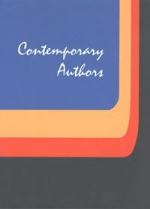|
This section contains 5,380 words (approx. 18 pages at 300 words per page) |

|
SOURCE: "The Poetic Heroism of Anne Sexton," in Literature and Psychology, Vol. 33, Nos. 3-4, 1987, pp. 76-88.
In the following essay, George examines the significance of forbidden knowledge, incest, and psychic guilt in Sexton's poetry. George contends that Sexton's truth-seeking resembles that of the mythical Oedipus of Greek tragedy and psychoanalytic theory.
Not that it was beautiful,
but that I found some order there.
There ought to be something special
for someone
in this kind of hope.
This is something I would never find
in a lovelier place, my dear,
although your fear is anyone's fear
like an invisible veil between us all …
and sometimes in private,
my kitchen, your kitchen,
my face, your face.
—Anne Sexton, "For John, Who Begs Me Not to Enquire Further" To Bedlam and Part Way Back
What the story of the Sphinx seems to emphasize is that the answer to the riddle of...
|
This section contains 5,380 words (approx. 18 pages at 300 words per page) |

|


